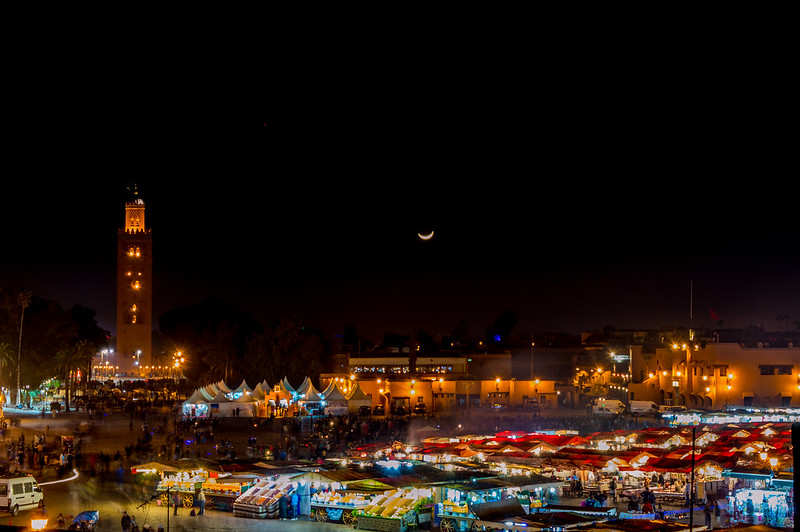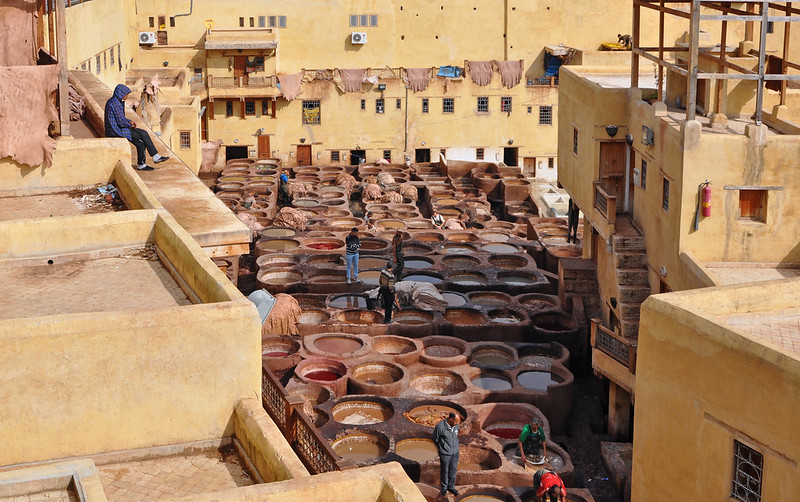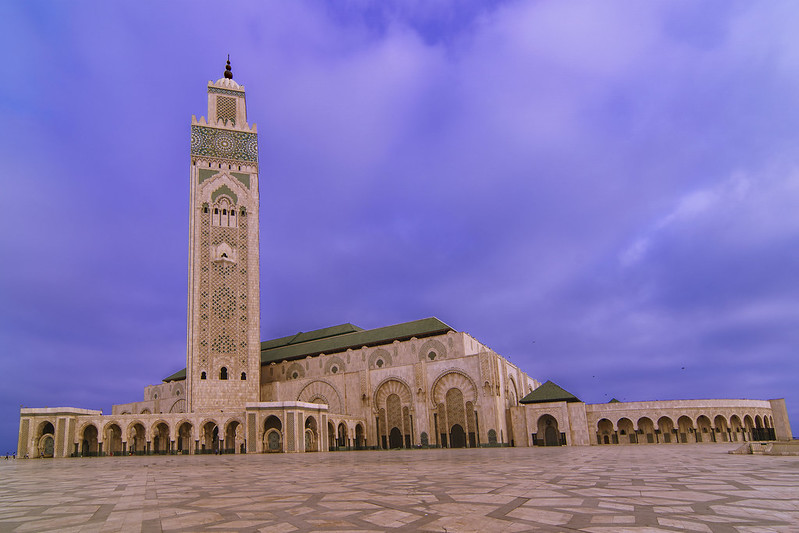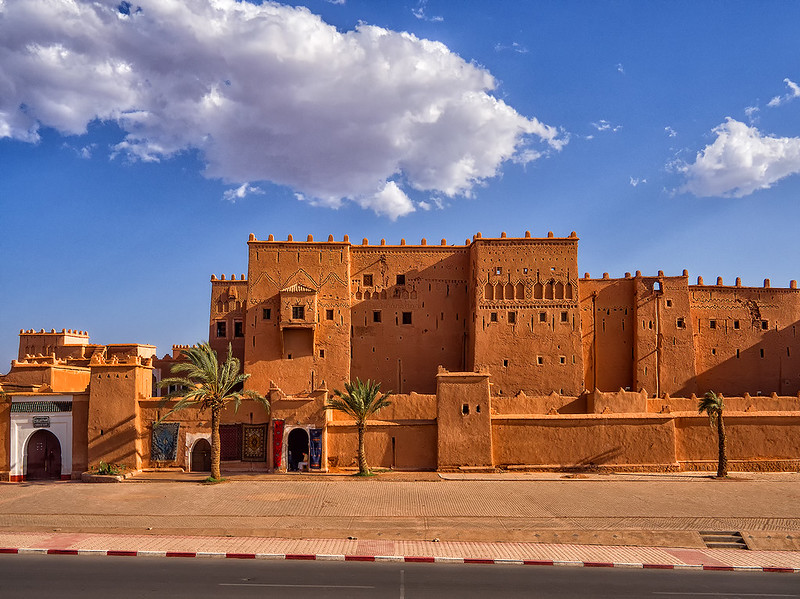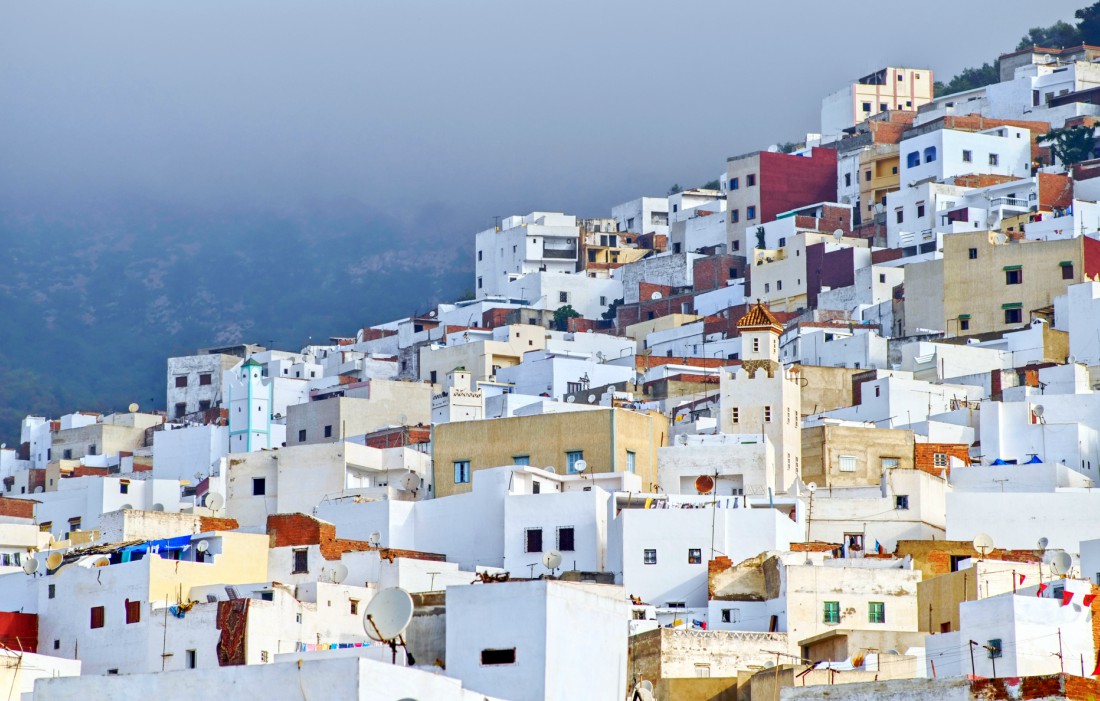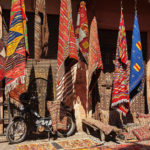Shopping in Morocco
Shopping in Morocco is a must for any visitor to this fascinating country: browsing, bargaining and the feeling of having walked away with a bargain are all part of the wonderful experience in Morocco.
It’s also a great way to contribute to the local economy by supporting local businesses and producers, so don’t be shy, put on your bargaining hat and bag yourself some amazing souvenirs from Morocco.
The best souvenirs to take home from Morocco.
Carpets
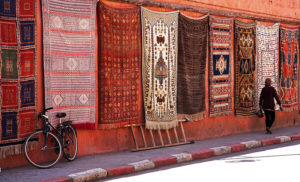 Berber rugs are traditional items dating back to the Paleolithic era. They are still made by hand in many rural areas of Morocco, without losing the customs and tradition in the way they are created.
Berber rugs are traditional items dating back to the Paleolithic era. They are still made by hand in many rural areas of Morocco, without losing the customs and tradition in the way they are created.
Carpet making is one of the most important handicraft activities in the country, being woven mainly by rural women, Berbers from the mountains. The culture of the carpet is deeply rooted in Morocco due to its value, which does not pass with time and for being a very used element to cover the floor of the homes.
The most prized rugs are made with wool from lambs less than a year old. The wool is spun by hand, tied with knots and produced in small cooperatives and factories. They are also made in cotton, silk and synthetic fibers.
Women weavers have accumulated, over the years, an artistic knowledge transmitted from generation to generation. This same woman artist-weaver, who carries with her a broth of innate and spontaneous creativity, spends days and nights weaving to remain the guardian of our traditions. Because as she weaves her works of art, she tells stories and passes on her culture to her children.
The tradition is being lost, as it is not very profitable due to the high cost of wool (10 kg for a normal carpet) and the time it takes to weave them, about two months of work.
Argan
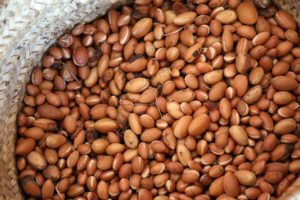 The argan tree is cultivated in the southern regions of the country. The oil is extracted from roasted seeds, there are two types of argan; cosmetic and culinary. You will want to specify which one you are looking for. True argan is thick, golden yellow in color and smells very nutty.
The argan tree is cultivated in the southern regions of the country. The oil is extracted from roasted seeds, there are two types of argan; cosmetic and culinary. You will want to specify which one you are looking for. True argan is thick, golden yellow in color and smells very nutty.
It is sold in bottles just as oil and you will also find many products with argan infused in them. Some of my favorites are argan shampoo and argan hand lotion.
Apply a small amount to the palm of your hand, rub it into your hands and spread evenly over the surface of damp (towel-dried) hair extending all the way to the ends. Warning: Avoid contact with eyes. If contact occurs, rinse immediately.
Argan oil repairs split and dry ends as it is super rich in nutrients and very moisturizing, thanks to the vitamins A, C and E it contains. Vitamin E, in particular, makes hair look healthy, shiny and bouncy.
Ceramic
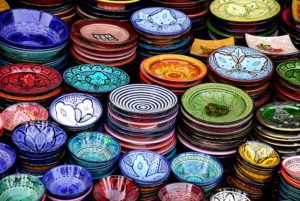 Ceramics is one of Morocco’s great artisanal specialties. They are handmade products made in the purest respect for tradition. Moroccan craftsmen use the technique of “double firing”, when the clay has obtained its shape and has been fired, it is painted and fired again to give it these bright colors, a hallmark of Moroccan ceramics. It can be for daily use or for decoration. It is food safe and dishwasher safe, the paint is lead free.
Ceramics is one of Morocco’s great artisanal specialties. They are handmade products made in the purest respect for tradition. Moroccan craftsmen use the technique of “double firing”, when the clay has obtained its shape and has been fired, it is painted and fired again to give it these bright colors, a hallmark of Moroccan ceramics. It can be for daily use or for decoration. It is food safe and dishwasher safe, the paint is lead free.
No doubt you will see hundreds of different types of handmade pottery and Moroccan ceramics during your visit. Plates, bowls, cups, decorative pieces, the list goes on and on. Moroccans love bright colors, but more and more neutral tones are appearing in the souks.
If you’re looking for a particular color or style, don’t hesitate to ask the merchant. If you’re flying, you can also ask to have these items wrapped or, better yet, if you plan to buy these items, add some bubble wrap to your bag. There is nothing worse than discovering broken pottery in your luggage.
Hammered metalwork
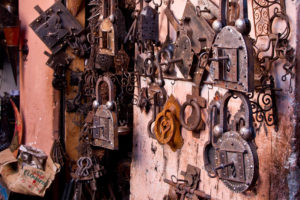 A long tradition in Morocco is the creation of engraved metalwork. Much of the work is in decorative pieces, but it is also found in more practical things like teapots, trays and jewelry. The items that can be purchased are a mix of hand-stamped and machine-stamped pieces. Careful inspection should be able to tell which is which.
A long tradition in Morocco is the creation of engraved metalwork. Much of the work is in decorative pieces, but it is also found in more practical things like teapots, trays and jewelry. The items that can be purchased are a mix of hand-stamped and machine-stamped pieces. Careful inspection should be able to tell which is which.
In the souks of most Moroccan cities you will be able to find workshops where metal items are made. You can see which are handmade and which are machine made, although many handmade items use a machine for some parts of the process. Hand engraving is a time honored tradition in Morocco.



